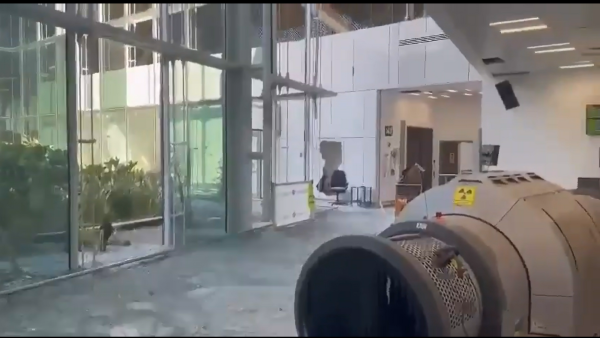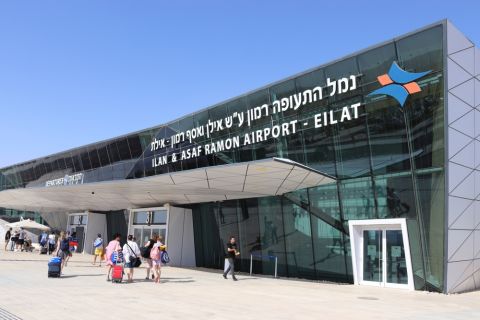ALBAWABA - A Houthi-launched drone from Yemen struck the Ramon Airport passenger terminal in southern Israel's Negev region without being noticed or intercepted, drawing increasing criticism of Israel's security apparatus.
The drone was able to get past defense systems and strike its target directly because of "serious operational errors," which the Israeli army acknowledged.
An internal investigation, according to Israeli Army Radio, found that the drone was not detected in time due to serious flaws in air surveillance and interception procedures. The drone entered Israeli airspace without being detected and then detonated inside the arrivals hall.
At least two passengers were hurt in the explosion and taken to Yoseftal Hospital in Eilat. Another man was confirmed by the Israeli emergency services to have suffered moderate leg injuries during the assault.
The Israeli army first asserted that it had stopped three drones that were being launched from Yemen. The military did admit in a later statement that a fourth drone had managed to avoid detection and hit the passenger lounge at Ramon Airport.
The Israel Airports Authority declared that Ramon Airport would temporarily close its airspace and suspend flights in the wake of the incident, with the goal of quickly resuming operations.
Eyewitness Testimonies and Escalation Issues
The Eilat mayor confirmed that the drone struck the airport without any warning alarms going off, calling the incident "deeply concerning." He cautioned that southern Israel is still directly threatened by Houthi forces, saying:
Despite Israeli military actions deep within Yemen, the Houthis have not forgotten Eilat. We cannot let our maritime routes remain vulnerable while the city's port is paralyzed.
Following targeted assassinations, the Houthi threat increases.
The Houthi movement in Yemen has increased its attacks on Israel since the August 28 assassinations of a number of high-ranking Houthi leaders, including Ahmed Ghaleb Al-Rahwi, the group's prime minister. The Israeli army claims that since the attacks on Sanaa, Yemen has launched seven drones and eight ballistic missiles.
As part of a larger plan to aid Palestinian resistance and counter Israeli actions in Gaza, the Houthis have promised "painful retaliation" for the targeted killings.
Political Repercussions and Security Issues
Because the Ramon Airport hack revealed flaws in Israel's air defense systems and raised concerns about the nation's readiness in the face of escalating regional threats, it has caused significant security concerns in the country.
Since then, out of concern for possible reprisals, Israeli security services have tightened security around Prime Minister Benjamin Netanyahu and other high-ranking officials, including Netanyahu, who is currently wanted by the International Criminal Court for alleged war crimes in Gaza.










